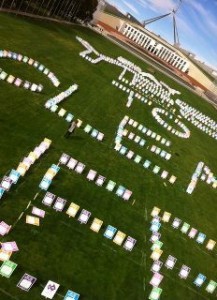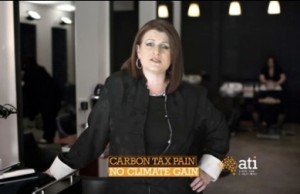In a country where ‘tax’ is usually considered a dirty word, the Australian government has decided on an energy policy that will fundamentally change the way the nation does business and cement the government’s stance on climate change.
Yet advocates and opponents of a revolutionary carbon tax remain at odds with one another – one side fighting for the nation to take responsibility for its pollution and protect its fragile environment and the other defending local jobs and industry.

The Government’s Clean Energy Bill, which passed through the Lower House in October, and became law with passage through the Senate on November 8th, features, among other initiatives, a carbon pricing mechanism that will require around 500 of the country’s biggest polluters to pay $AU23 per ton of carbon emitted.
Tony Mohr, Climate Change Program Manager with the Australian Conservation Foundation (ACF), said that it covers about 60 per cent of the nation’s emissions, bar agriculture and light on-road vehicles. “It’s bigger than the EU scheme and I think bigger in scope than any other scheme anywhere in the world,” Mr. Mohr said.
The ACF, along with a number of other key climate and environment groups, has driven much of the public support for the carbon tax since it was first proposed last year.
During that time, Mr. Mohr has seen public opinion on climate change action shift due to campaigning by the opposition government. “A lot of it does boil down to the injection of a very, very fierce scare campaign and that’s polarized the issue much more so than in other countries where they haven’t had that scare campaign,” Mr Mohr said.
The divide is certainly clear at the grass-roots level, where both advocates and opponents have made grand public statements affirming their side on the debate, from issuing dirty companies with pollution invoices to interrupting Parliament with verbal abuse.
At the industry level, while the world’s largest green investment groups recently hailed the new carbon tax as a boon for investors, industry closer to home has far greater concerns.

Greg Evans, Director of Industry Policy and Economics at the Australian Chamber of Commerce and Industry (ACCI), a group representing 350,000 of the nation’s businesses, said that Australian industry was opposed to a unilaterally imposed government regulation, instead favoring efficiency and technology to deliver emissions cuts.
“It will put the Australian industry at a competitive disadvantage,” Mr. Evans said. “Australia traditionally has had competitively priced energy relative to other countries and we don’t believe we should unnecessarily forgo that advantage.”
“If we compare ourselves to our competitors, they’re not actually imposing any unilateral pricing regime and for example Brazil, USA, Canada, Japan, China, India, South Africa – there’s no movement in those countries for the imposition of a carbon tax, so I actually think Europe’s out on its own on this and there’s quite a strong view in Australia that we don’t want to follow the European model of anything.”
Earlier this year, the ACCI allied with five of the nation’s most prominent industry groups to vocalize their opposition to the tax through a nationwide advertising campaign.
The ads touted the supposition that any action on Australia’s piece of the global emission pie – a humble 1.5 per cent – would have a negligible impact on global emissions reductions.
It’s clear that opposition to the tax is fueled by a fear of taking a leap of faith, without a guarantee of other countries following suit. And the current tug of war in Australia arouses a key question in the broader climate change debate: If the international community isn’t willing to act mutually, which country (bar the EU) will take the lead on climate change?
With the Clean Energy Bill having cleared the Senate, it seems Australia will at least take the first steps for us all. But Mr. Mohr said the plan isn’t perfect and is still missing some vital elements, including a clear reduction target. “We’ve had a number of goes at it so what we’ve got in front of us here, certainly it lays the foundations for solid action on climate change, but it’s by no means enough on its own,” Mr. Mohr said. “We’re really just started this road and we’re a long way from done, but we’ve got now this big legislative tool to help us get down the road some way…I think getting out of the somewhat abstract debate about policy and different options and into real world of real changes will certainly help Australians get their head around how exciting it all is.”
To hear more from Tony Mohr and Greg Evans, listen to the rest of their interviews below.
Greg Evans, Director of Industry Policy and Economics at the Australian Chamber of Commerce and Industry:
[audio:https://sagemagazine.org/wp-content/uploads/2011/11/Greg-Evans3.mp3|titles=Greg Evans]Tony Mohr, Climate Change Program Manager at the Australian Conservation Foundation:
[audio:https://sagemagazine.org/wp-content/uploads/2011/11/Tony_Mohr2.mp3|titles=Tony Mohr]